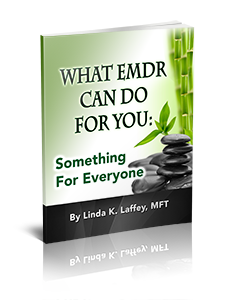TRAUMA THERAPY
Do You Feel Trapped By Painful Emotions From Your Past?
Is The Pain Preventing You From Enjoying Your Life?
Perhaps you can relate to one or more of the following symptoms of unresolved trauma or abuse:
- You feel anxious or stressed most of the time.
- You are easily upset by seemingly insignificant events.
- You feel sad, lonely, worthless or an absence of passion.
- You experience recurring flashbacks and/or nightmares relating to a traumatic or abusive event.
- You feel like you don’t “fit in” with most group situations, so you avoid them.
- Your self-esteem is low, you lack self-confidence, and your fear of rejection causes you to isolate more often.
- You have intense fear of being humiliated, criticized, ridiculed or embarrassed.
- You avoid pain through overworking, alcohol or drug abuse, relationship addiction and/or compulsive behaviors.
- You experience extreme performance or test anxiety.
- You are physically present, but physically and emotionally you feel like you are “somewhere else”.
- You are disappointed in the results from previous therapy experiences that gave you partial or no relief, leaving you feeling discouraged.
- The harder you try to talk yourself out of these feelings, the stronger and more debilitating they become.
If you can relate to any of these feelings and experiences of post-traumatic stress or PTSD, you do not need to go on living this way. Unresolved childhood trauma and abuse is often at the root of these problems, and the good news is that counseling can be a great solution.
What types of trauma can be resolved through Trauma and Abuse Therapy?
Traumas can be divided into two categories, “Big T” traumas and “Little t” traumas.
“Big T” traumas include major events, such as:
- Severe physical, emotional or sexual abuse
- Death of a loved one
- Automobile or other type of accident
- Major illness, injury or health problem
- Abandonment or rejection by a parent or significant other
- A relationship breakup often involving a deep betrayal.
- Experiencing or witnessing a violent crime or involved in military combat.
- Experiencing a natural disaster, such as an earthquake.
“Little t” traumas are more subtle in nature, mostly childhood trauma, often misconstrued as insignificant, and can have a long term negative impact on your sense of well-being. They may include:
- Ongoing pervasive neglect by a parent or caregiver, known as complex trauma (happening repeatedly over time).
- Experiencing painful or hostile family relationships as a child or adult.
- Never “measuring up” to the unrealistic expectations of a parent.
- Constant criticism or ridicule by an authority figure.
- Being shunned or ignored by an important person.
- Humiliation by a friend, family member, teacher, etc.
- Embarrassment, harassment (bullying) or abuse by a co-worker or boss.
- Anxiety about a traumatic event experienced by a loved one.
- Chronic physical pain.
Understanding Trauma and Its Effects
Traumatic memories, which all tend to be categorized as Post-Traumatic Stress Disorder (PTSD), are stored in their own separate part of the brain, known as the limbic system or emotional brain. If unresolved, both big “T” traumas and little “t” traumatic memories are stored in the limbic system, and can be “triggered” or re-activated by current events.
For example, if you experienced intense pain from being rejected by a parent in the past, you may notice those same painful feelings resurfacing when you’re feeling rejected by your spouse or a close friend. The feelings may be familiar even though you may be unaware of events in your past where you felt the same.
The longer these traumatic memories go unresolved, the more entrenched they become, and the more intense the pain when they are re-activated, contributing to higher and higher levels of traumatic stress.
It’s Never Too Late To Resolve Trauma and Abuse. You Can Make Positive Changes in Your Life Through Trauma Therapy
Thanks to years of ongoing brain research, trauma therapists now have therapy and counseling approaches that can successfully target and treat trauma. In the past decade, these new therapy approaches have transformed the field of trauma therapy. Clients who have experienced trauma are finding that their symptoms are being resolved through counseling in a way that was not possible before.
Imagine how light and free you would feel if you could release the emotional heaviness attached to your traumatic memories that have been the source of your recurring pain.
As a trauma therapy specialist, I have over 10 years of advanced therapy training in methods for resolving the pain of trauma and abuse.
Abuse and Trauma Therapy With Me Can Help You To:
- Feel more comfortable and relaxed in every area of your life.
- Experience increased self-esteem and confidence.
- Feel free from pain from your past, and have a more positive outlook on life.
- Say goodbye to addictive and compulsive behaviors.
- Experience more fulfilling and satisfying relationships.
- Become passionate about your life.
- Feel safe and experience the world as a friendly place.
- Move forward with more energy and joy as you achieve your life goals.
With my skills, training, experience and passion for helping people free themselves from their emotional pain from the past, along with your consistent willingness and commitment, we can work together in counseling so that YOU can feel better about yourself than you ever dreamed possible.
Take The First Step…
If you have suffered long enough and want to free yourself from debilitating emotional pain now, please click the button below to schedule a no-charge 15-minute telephone consultation.
I look forward to hearing from you.
Linda K. Laffey, MFT







